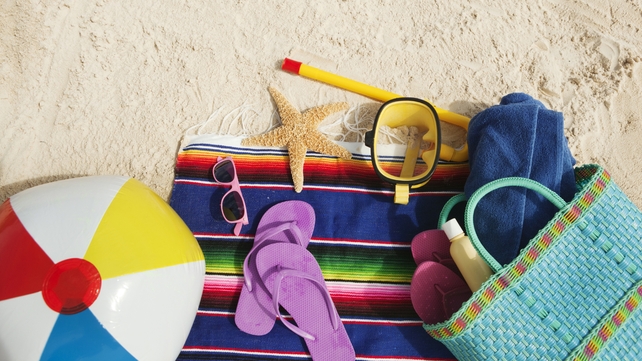Five top tips tips from the Competition and Consumer Protection Commission (CCPC) on how you can save money by avoiding nasty surprises while you’re on holiday.
Travel insurance – doubling up on insurance cover?
Have you got private health insurance? If so, check to see what cover you have already before you buy travel insurance. Private health insurance policies often cover illness and injury while you are abroad. However you will need travel insurance to cover things such as cancelled or delayed flights or lost luggage. If you don’t currently have travel insurance there are lots of different policies and options available, depending on how long you are going for, where you are going to and what you will be doing on holidays. Policy terms and conditions differ with each provider so check what level of cover is offered and any exclusions that apply. For instance, not all policies cover damage to mobile phones.
Also, find out what excess you will have to pay if you make a claim. The excess is the first part of any insurance claim that you have to pay yourself and it is usually a fixed amount. So, if you make a claim for lost luggage worth €1,000 and the policy excess is €200 and your claim is approved, the insurer would pay out €800.
When comparing policies choose ones with the same level of cover to ensure you get the right product at the best price. If you’re feeling brave and plan on doing some more adventurous activities while you are away, such as diving or skiing, make sure you specify this when you are choosing your policy. Some policies won’t cover you if you need to claim as a result of these activities.

Roaming charges – afraid you’ll miss the chats while away?
Roaming charges have come down a lot over the last few years, particularly if you are travelling within the Eurozone. However, do your research before you travel - talk to your provider to make sure your phone will work in the country you are travelling to, and find out what charges apply there, in particular any data roaming charges.
Callcosts.ie has an online calculator that allows you compare the cost of different mobile operators within the Eurozone.
While you are abroad, make sure you are connected to your mobile phone operator’s recommended network.
Bank card charges – remember it’s your hard earned money!
Cards are a handy way to pay for things while you are on holiday, but remember, you will be charged. When you use your debit card at an ATM or to make a purchase in the Eurozone, you’ll be charged exactly the same as you would at home.
However, if you use your debit card outside the Eurozone, for example in the USA, you will be charged a non-euro cash withdrawal or card purchase fee.
This is usually a percentage of the transaction, with a minimum amount per transaction. Try not to use your card for lots of small transactions, as these charges add up. Check out the current account comparison on the CCPC’s consumer website, for more details of charges that apply when you use your cards abroad.

Rental accommodation scam – be one step ahead
Heard of the rental accommodation scam? This could be a very nasty surprise if you aren’t aware of it and were to get scammed. This is when scammers go to an online marketplace for property owners offering places for rent; copy the photos, addresses and other information from various listings and then use this to put up a fake listing of their own. This scam is designed to get you to pay the full rental price or at least a size-able security deposit upfront. When you pay this money upfront you will never hear from them again.
Always make sure a listing is genuine before you make a booking. You can do this by taking the time to do some research on the person/company offering the rental property.
Always use a reputable website and make sure to check user ratings and reviews before you commit to a rental property.
When paying always use a secure method of payment, such as a credit card or Paypal, make sure you stay on the booking website and pay using their platform, and check with the site that the booking is confirmed. Never send cash or use a money-wiring service because you'll have no comeback if something goes wrong.

Hiring a car - avoid nasty charges
Are you thinking of renting a car? If you decide to hire a car in a different country make sure to check the rental firm’s website for their terms and conditions.
Pay particular attention to the small print and know what the quoted cost includes and excludes. You may find that not all charges are included at the time of booking – such as child seats, additional drivers, extra insurance etc.
Also, find out what the fuel policy is before you rent and make sure it is explained to you clearly before you confirm the booking. It is also worth taking photos of the inside and outside of the car before you rent it so there can be no arguments about damage when you hand the car back.
Clodagh Coffey is Head of Consumer and Digital Communications with the Competition and Consumer Protection Commission (CCPC). The CCPC is responsible for enforcing competition and consumer protection laws across the economy. To help consumers make informed decisions it also gives independent, unbiased information about consumer rights and personal finance products and service through its consumer helpline 1890 432 432 and consumer website


